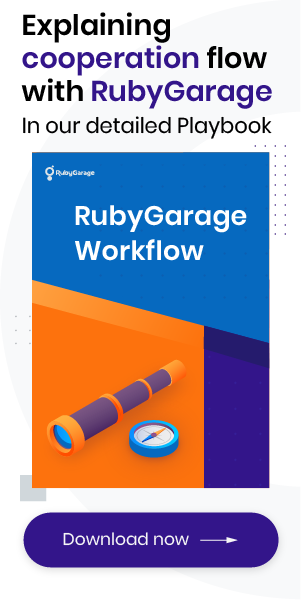-
Product Management
Software Testing
Technology Consulting
-
Multi-Vendor Marketplace
Online StoreCreate an online store with unique design and features at minimal cost using our MarketAge solutionCustom MarketplaceGet a unique, scalable, and cost-effective online marketplace with minimum time to marketTelemedicine SoftwareGet a cost-efficient, HIPAA-compliant telemedicine solution tailored to your facility's requirementsChat AppGet a customizable chat solution to connect users across multiple apps and platformsCustom Booking SystemImprove your business operations and expand to new markets with our appointment booking solutionVideo ConferencingAdjust our video conferencing solution for your business needsFor EnterpriseScale, automate, and improve business processes in your enterprise with our custom software solutionsFor StartupsTurn your startup ideas into viable, value-driven, and commercially successful software solutions -
-
- Case Studies
- Blog
4 Key Principles of Agile Development Methodology
A lean approach is the only way to effectively meet the uncertainty in rapidly changing markets. As we explained in our article A Lean Approach in Web Development, in software development terms this approach is favored by Agile methodologies.
Not so long ago, software development projects were implemented based on ‘traditional’ planning methods. Product owners (business directors, technical managers, or other employees responsible for a product within a company) plan how much time and effort the process of product creation should take. They would allocate additional resources for unforeseen circumstances, but in the case of unexpected changes, re-planning was required. This ‘traditional’ software development method is typically called the ‘waterfall’ method. The waterfall method was actually pretty effective, for a time, and had various advantages.
However, the more changes a projects underwent, the more resources were needed to implement them. In the 21st century, the modern world evolves so quickly — in terms of technologies, priorities, requirements, design trends etc. — that long-term planning for software products is effectively impossible while the waterfall method worked in the past, it can’t meet the challenges of the modern tech world.
So how can we respond to rapid changes in project requirements while at the same time to minimizing costs and development time?
Since the mid-1990s, a few approaches have been created to address this issue. A number of these approached turned out to have some common principles, which were later defined in The Agile Manifesto. The Agile Manifesto declares four fundamental principles of agile software development. However, these ideas are often interpreted incorrectly, so we’re going to address them briefly.
Agile Principle #1 – Respond to Changes, Don’t Follow a Plan

When the product creation process is thoroughly planned (as in the waterfall approach), the overall progress of the project can be unclear midway through development. On the contrary, agile methods are focused on responding to changes, so a project’s progress must be clear to all team members at any given point in time.
To achieve clarity, agile methodologies suggest splitting tasks into short time frames. Known as ‘iterations’ in the software development process, these short time frames typically take one to four weeks, but encompass during that time all stages of the typical product development process: planning, gathering requirements, designing, coding, and testing. After each iteration, the team demonstrates the product to its owners and other stakeholders, and only then do they decide what to do during the next iteration.
This approach allows greater flexibility, the ability to quickly adapt to changes, and reduces the risk of product failure. Agile development doesn’t seek to do away with planning altogether, but rather to plan for the short-term and focus on implementing the most critical features first.
Agile Principle #2 – Collaborate with customers constantly
Markets change rapidly, and sometimes customers might not even know what solutions they will need tomorrow. That’s why it’s crucial to switch from our mode of thinking from predicting the future to adapting to the present.

An adaptive approach implies that teams should gather feedback from customers on a regular basis and adapt the product based on that feedback after each iteration. In practical terms, this lets you see what functionality users are actually looking for. Whether or not that corresponds to the product owner’s vision is another matter entirely. With an agile approach, software is developed in a way that allows it to be easily changed at any stage of the development process to meet the demands of customers and product owners.
Agile methodologies place customers in the center of the development process, forcing development teams to think of product functionality and design in terms of user stories (i.e. scenarios that users will follow to achieve a goal) and use cases (the ways users achieve goals using the product).
According to worldwide industry data, agile projects succeed twice as often as traditional projects. This can likely be attributed to the more satisfying experience for users, whose needs are addressed directly with agile development methodologies.
Agile Principle #3 – Build Working Software, not a Novel Explaining it
While documentation is still important in agile approaches, any documentation becomes useless if you end up creating a product that nobody needs. To avoid irrelevance, focus on creating small working pieces of a product that you’re sure your users want.

But what counts as a ‘working’ piece of a product? This will vary from project to project, but is something that should be defined in your documentation before you start working on any particular component.
Another important aspect of agile methodology is delivery speed (the faster you release a working product, the better), which implies that it’s always more efficient to write only necessary documentation that will surely be used shortly after it’s written.
Agile Principle #4 – Focus on Interactions and People Instead of Tools and Processes

Studies show that effective communication may improve team performance up to 50 times over. Agile methodologies pay special attention to communication techniques through such principles as daily standup meetings and pair programming.
However, achieving the full potential of your team requires a supportive environment and smart leadership. To build such an environment, agile methodologies seek to facilitate positive conflicts, create common goals, build trust, increase transparency, foster respect, and encourage commitment to the project.
What are the Benefits of Flexible Agile Development to Product Owners?
- Since development starts quickly and results in a functional product within a few iterations, the product is delivered to market faster, meaning a quicker return on investment.
- Customer involvement during all stages of the product creation process ensures that users will be satisfied by the product, reducing the risk of product failure. Constant communication between the development team and the product owner builds trust, increases transparency, and guarantees that the first features to be implemented are the ones with the greatest business value.
- Turning business requirements into acceptance criteria, user stories and test cases help developers to better understand and deploy the product in accordance with a product owner’s expectations.
- Due to the limited duration of iterations, the costs and schedule of the next planned scope of work can be accurately predicted. Thus, the product owner can know the approximate cost of any feature they wish to deploy.
- Taking advantage of various testing techniques helps to ensure a high-quality product that can later be improved, updated or scaled with minimum effort.
- The whole development process is made more efficient by avoiding long-term planning, writing full documentation and implementing features that will not bring business value.
From our perspective as the RubyGarage web development team, it’s clear that Agile methodologies are the most effective for building successful and profitable products with limited time and budget.











